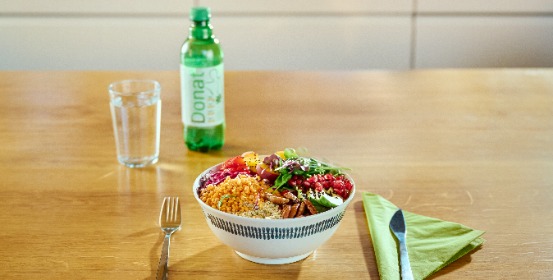The chilly autumn days are just around the corner, and so is the beginning of the dreaded flu season. And with the threat of COVID-19 hitting us harder again, who wouldn’t want their immunity to be in top shape right now? As you’ll already know if you’ve read our article on the top natural ways to boost your immune system, giving your body’s defence mechanism a literal boost is not really a thing, there is still a lot we can do to help it function properly. And as it all starts with proper nutrition, let’s get ready for the winter by taking a look at what vitamins help the immune system and how to get enough of them.
Vitamins and Boosting Your Immune System – the Truth
Most of us are constantly in search of useful vitamins and minerals because we think that certain food and drinks can significantly improve the ability of the body to fight harmful microorganisms. However, scientists are skeptical about the fact that we can “strengthen” our immune system just like that because that would mean that the defense mechanism of our body works more than it could. However, one thing is certain: even the experts agree that our immune system needs just a bit of help to work flawlessly.

But what do they mean?
Well, your immune system consists of a vast network of cells, tissues and organs, constantly standing guard and detecting unwelcome substances.
When this system recognises foreign tissues, it attacks and destroys them for our own good. But to be able to keep doing so every time when our body is under threat, all of its parts must work together like a well-tuned machine. And this is only possible if we sustain healthy habits that don’t interfere with any of the major players in this immunity network, causing a weak immune system.
And that’s where nutrition comes into play, especially vitamins and minerals. They won’t turn your organism into a virus-fighting powerhouse overnight, but if you consume them regularly and in high enough doses, they can effectively help your immune system to stay strong when you need it most. This, of course, means that a few oranges won’t give you enough vitamin C to stay safe from a nasty cold, but if you combine a well-balanced mix of vitamins and minerals over time with a healthy dose of exercise, sleep and relaxation, your chances of catching nasty something will be much lower. Therefore, it’s beneficial to know the vitamins that are especially important for your immune system, and to make sure you get enough of them.
Do You Get Enough Vitamins to Help Your Immune System?
Sadly, too many among us know the theory but don’t live by it. We don’t consume enough fresh fruit, vegetables and other healthy foods, which has clear consequences. Inadequate nutrition is known as one of the main reasons for a weakened immune system in people all over the world.

According to a 2007 study published by the British Journal of Nutrition, nutrients such as vitamins and minerals support the immune system at three levels:
- they help our physical barriers that protect us from harmful substances, like the skin and mucous (vitamins C and E);
- they contribute to the immunity of our cells (vitamins B6, B12, C, D, E);
- they assist in the production of antibodies, proteins that neutralise harmful substances (vitamins B6, B12, C, D, E).
Unfortunately, not getting enough vitamins to help the immune system is especially widespread among people who do not have access to foods with higher nutritional value, either due to their lifestyle or economic factors. If you’re one of those who largely rely on processed foods, your diet could lead to a deficiency in one or more of the vitamins and minerals that are essential for a strong immune response. If this is the case, your immune system might not be working at full capacity.
And what is the simplest way to obtain larger amounts of the vitamins that are best for our immune system?
Without a doubt, a diet that is rich in various fruits and vegetables takes the first place. According to the British Nutrition Foundation, we should aim to have at least five portions of fruits and veggies every day, and the more colourful the mix, the better! Of course, the exact amount of vitamins each of us needs depends on several factors, such as our age, size, levels of physical activity and so on. However, it’s recommended that fruit and vegetables make up at least one third of what we eat on a daily basis.
One option to make up for the vitamins and minerals that we don’t consume through our diet is taking micronutrients in pill form.
But despite the fact that there are more and more over-the-counter food supplements on the market, we still recommend that you first try to get the top nutrients from fresh and delicious food. This is because your body is able to absorb and use them more efficiently in this form.
So, What Vitamins Are Best for the Immune System?
Let’s finally dig into what vitamins help the immune system to stay strong in the fight against harmful viruses, bacteria and parasites.
Vitamin A
Vitamin A and the immune system
This vitamin plays one of the key roles in keeping your immune function intact. It helps the mucus barriers in our eyes, lungs, gut and genitals to keep the bacteria and other harmful substances from entering the organism. It also helps in the production of white blood cells, which capture bacteria in our bloodstream and kick them out of the system.
Where to find vitamin A?
You’ll find vitamin A in foods such as eggs, (oily) fish, cheese and other dairy products. When shopping for fruits and veggies, simply go colourful. Carrots, pumpkins and sweet potatoes are rich in carotenoids, colourful compounds that our bodies convert into, you guessed it, vitamin A!
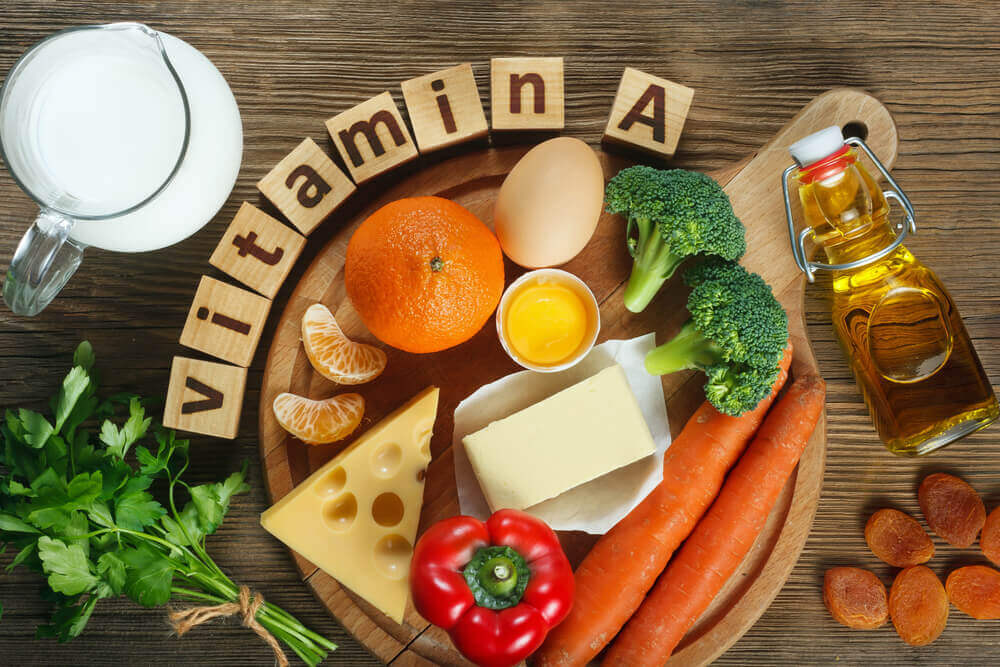
Vitamin B6
Vitamin B6 and the immune system
This vitamin’s role is to support biochemical reactions in your body. If you don’t get enough vitamin B6, your organism can’t produce enough white blood cells, antibodies and other compounds that help to ward off dangerous substances.
Where to find vitamin B6?
Have some chicken, salmon or tuna. When picking veggies, go for the green ones, but also for some potatoes and chickpeas, nuts, and so on.
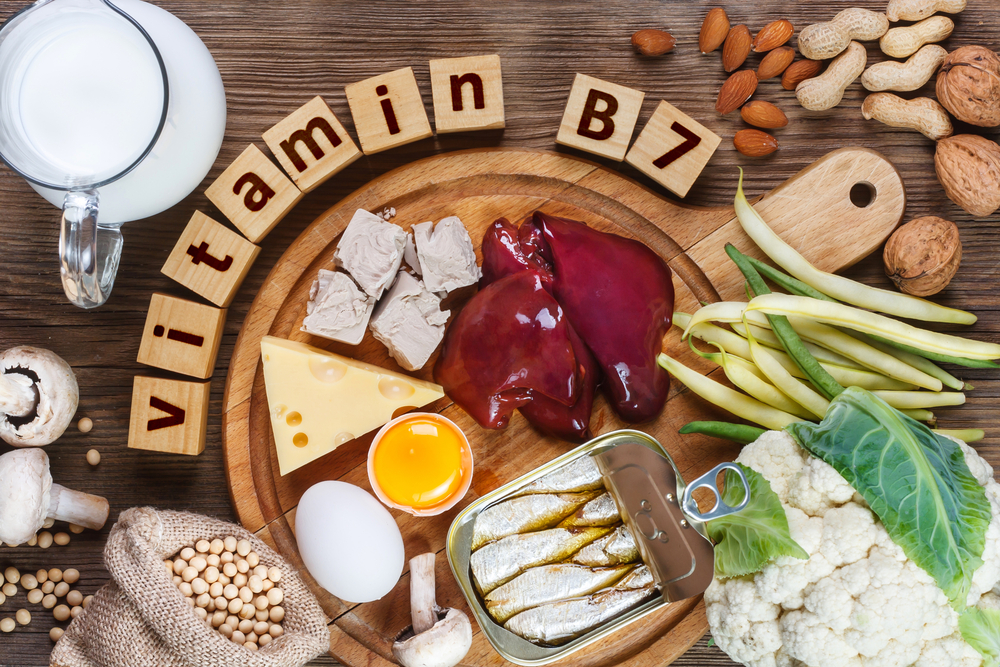
Vitamin C
Vitamin C and the immune system
Vitamin C is widely recognised as one of the most important vitamins for your immune system, a true “immunity booster”. It is one of the essential vitamins as your body cannot produce it on its own and store it for longer periods. As an important antioxidant, it helps your body fight off free radicals, molecules that can damage your cells and may even cause cancer.
Vitamin C is also crucial for your skin, boosting the production of collagen and thus helping the skin keep harmful compounds out of the organism. It also speeds up the healing of wounds. What’s more, vitamin C also promotes the activity of immune cells that are able to swallow dangerous bacteria while also supporting the growth and circulation of lymphocytes. These are proteins that travel through our bloodstream and destroy any harmful intruders.
However, as far as the relationship between vitamin C and the common cold is concerned, scientists still don’t all agree. While some studies emphasise that it can’t treat the symptoms of a cold, and instead only prevent us from falling ill, other papers argue that taking vitamin C can actually help us recover faster.
Where to find vitamin C?
Luckily, you can find vitamin C in many commonly available foods: oranges, strawberries, bell peppers, broccoli, Brussels sprouts, kale, spinach, blackcurrants, potatoes and many more!
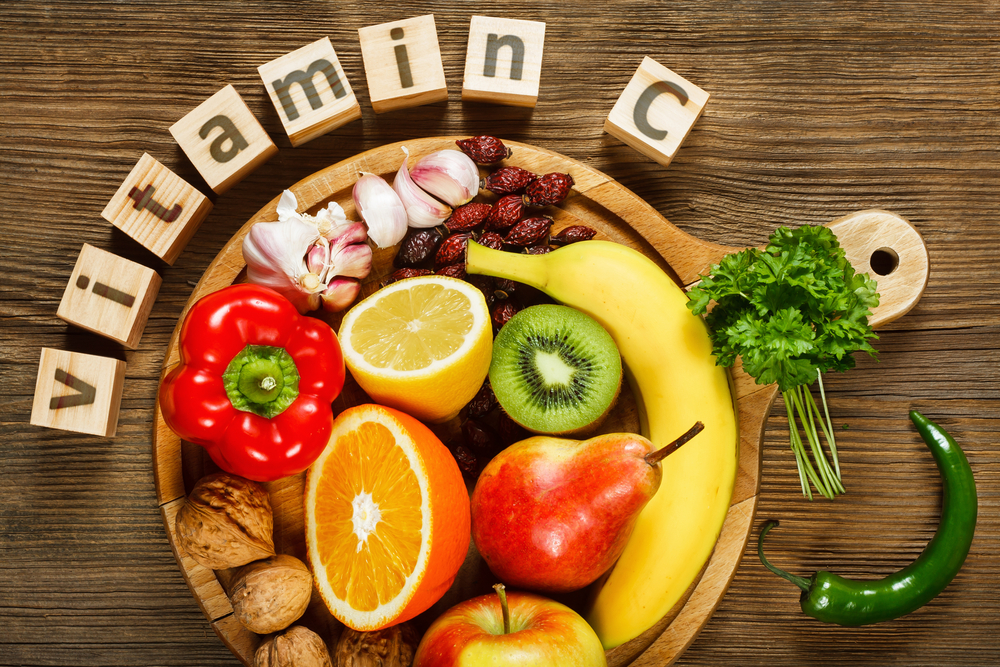
Vitamin E
Vitamin E and the immune system
This vitamin is another powerful antioxidant that helps the organism fight off infections. In addition to its antioxidant role, vitamin E also acts as a guardian of some other vitamins, and helps the body use vitamins A and K more efficiently. On the other hand, in order for vitamin E to successfully overcome free radicals, it needs a boost in the form of vitamin C!
Where to find vitamin E?
Nuts, seeds, spinach and avocados are all rich in vitamin E. You can also get it from olive oil and fish.
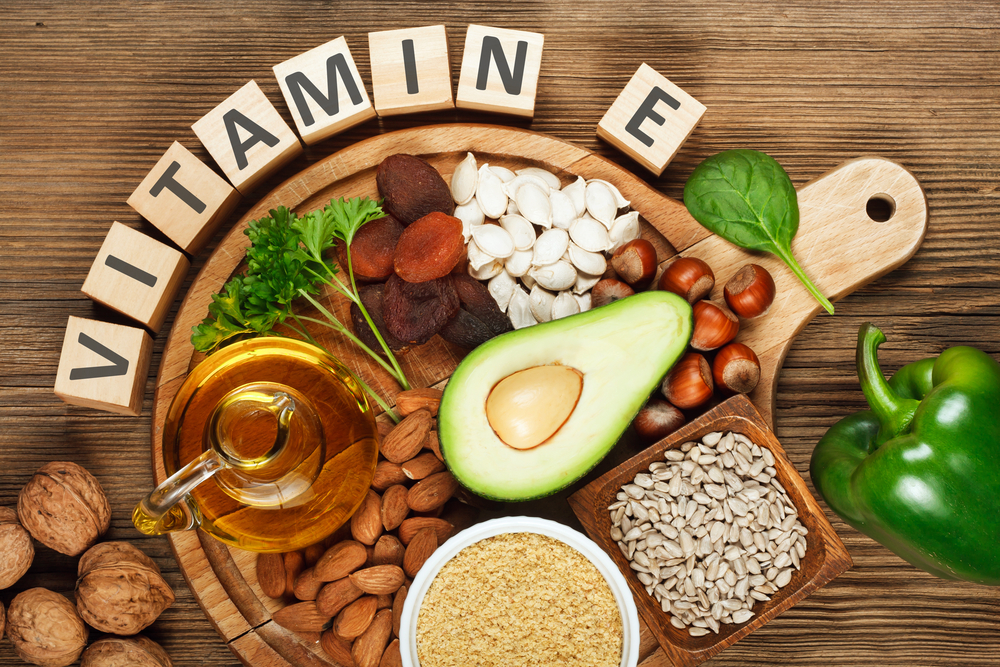
Vitamin D
Vitamin D and the immune system
This vitamin is crucial for the proper functioning of immune cells while also having strong anti-inflammatory properties. In fact, it is so important for our immune system that low levels of vitamin D are associated with a greater risk of infections and other health issues, such as respiratory diseases.
Where to find vitamin D?
While we’ve been stressing how you should get your vitamins from food rather than through supplements, we have to change our story a bit for this one. The reason lies in the fact that our organisms get most of their vitamin D straight from the sun. Its dietary sources are few and far between, for example salmon, mackerel, sardines and herring, and unfortunately for most people fish don’t find their way to our plates often enough. Natural sources of this vitamin also include liver, eggs and cheese. Additionally, many products are also enriched with vitamin D, so we can find it in milk, breakfast cereals, certain beverages, some vegetable oils, margarine spreads and more.
However, studies have shown that we receive very small quantities of vitamin D through food – only 20 % of total daily needs. This would not be such a problem if we spent more time out in the open, enjoying the sun and replenishing our vitamin D reserves. Moreover, we are most active out in the open during summer, when protecting our skin from the sun is key. However, you should know that using a sun cream with a high SPF significantly reduces the ability of the skin to naturally produce vitamin D.
So, how do we let our skin produce a sufficient amount of vitamin D?
Experts say that 10-12 minutes of sun exposure during the strongest solar radiation and without chemical or physical protection should be enough. It is especially important that your hands as well as your face, legs and back are exposed to the sun. But don’t take things too far, and listen to the recommendations of dermatologists and other experts. Too much sun won’t only hit your skin hard, causing unpleasant burns, but also increase your risk of cancer. So do enjoy the sun responsibly and, if possible, also fight vitamin D deficiency with a good diet.
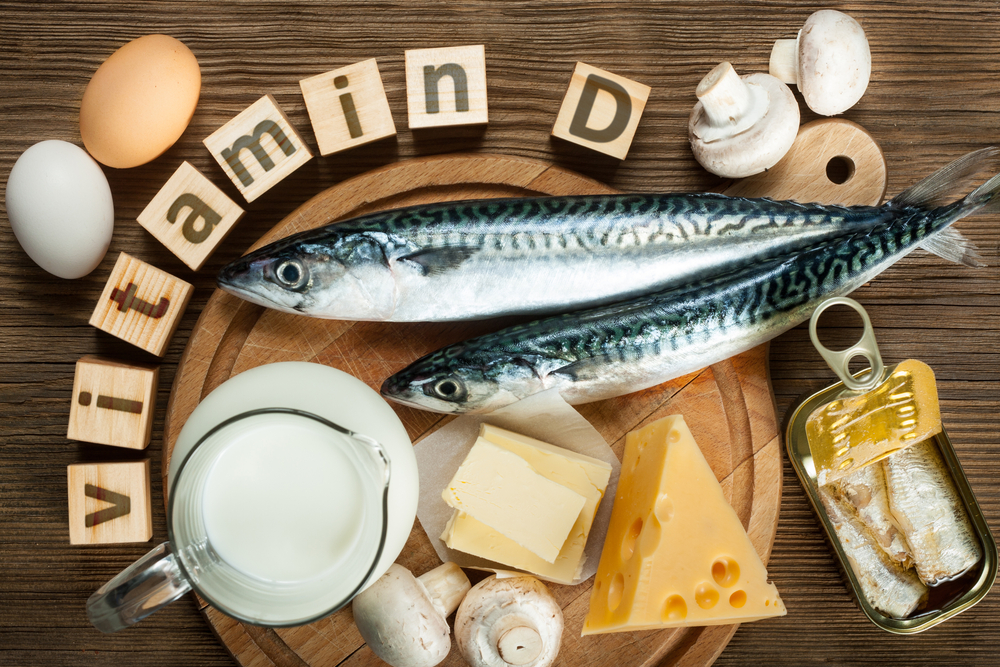
Bonus Tips: How To Really Get Vitamins That Help Your Immune System?
Enjoy a Colourful Diet!
When shopping for groceries, aim for a colourful selection of fruits and veggies. The prettier your basket looks, the better for your overall health. This is because getting your fruit and vegetables in almost every colour of the rainbow is a sure-fire way to ensure you get the variety of micronutrients that your immune system needs to work well!
Can’t Get to the Farmer’s Market? Buy the Frozen Stuff!
There is a myth that frozen fruits and vegetables are useless, and that only fresh local produce can give you the right immunity boost. While we support preparing food from as many fresh ingredients as possible, we also want you to keep in mind that there’s nothing wrong with some frozen choices. Why? Because they are generally frozen when they reach their “peak” ripeness, which means they retain their nutritional value. Just make sure you don’t go for packets with added sugar or salt!
Make sure to keep your digestion healthy
Even though this advice is not related to vitamin intake, it is extremely important. Up to 80 % of immune cells are in our digestive tract. Therefore, healthy digestion is extremely important for a strong immune system.
Frequently asked questions
1. How do vitamins and minerals take care of our immune system?
Vitamins and minerals take care of our immune system on three levels: they support physical barriers toward harmful material (skin, mucosa), contribute to the immunity of cells, and help in the creation of antibodies that neutralize harmful material.
2. How to make sure we are getting enough vitamins and minerals into our body?
The best way to supply your body with an adequate reserve of key vitamins and minerals is a balanced diet that includes different fruit and vegetables.
3. What is the quantity of vitamins and minerals we need every day?
A sufficient quantity of vitamins and minerals depends on a few factors, such as age, weight, level of physical activity, etc. It is recommended that fruit and vegetables make up at least a third of everything we eat on a daily basis.
4. Which are the most important vitamins for a strong immune system?
Vitamins A, B6, C, E, and D are the most important vitamins for the proper functioning of the immune system.
5. Can we get vitamin D from food?
Our body is unable to produce vitamin D by itself, and we can intake only around 20 % through food. The most important source of vitamin D is sunlight.
Choose chapter:




